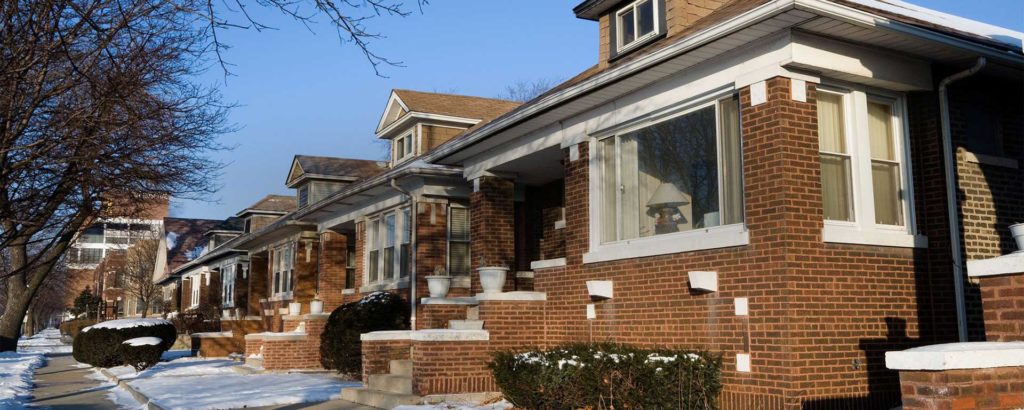Homeowners are sometimes handed lemons when the housing market slumps as they’re about to or are in the process of selling their home. If possible, the best option is to remove the home from the market and wait for a better selling environment.
However, many that are in a financial crisis, transferring jobs, have outgrown their home with new additions, or otherwise don’t have a choice but to move simply don’t have the luxury of waiting for a favorable selling market. Sometimes, it’s a must to avoid getting stuck with two mortgages. In any case, they need their home to sell as quickly and painlessly as possible.
With some ingenuity and careful planning, those that must sell when the market isn’t favorable to them can still make lemonade out of the lemons. That’s not to say that the seller will get exactly what they think their home is worth, but there are some tips to help sellers close as painlessly as possible in a down market.
Tip One: Give Buyers The Sense They’re Getting A Great Deal.
First step is to determine the selling price of similar, or comparable, properties in the area. This is done in three steps:
Look at newspaper and online listings. Don’t forget owner/seller listings commonly advertised on social media.
Attend open houses to compare the quality of the listing against against your own.
Search the MLS (multiple listing service) for comparables. Your real estate agent can help you.
Once you get a comprehensive picture of what other properties in your area are selling at, you can reasonably price your home lower than competitors to entice buyers to it.
There will be temptation to price it at the upper end of comparable properties and hold out for a similar price, but this isn’t what will entice buyers to view your home first and make an immediate offer on a ‘great deal.’
Bottom line: If you need to close on your home quickly, then you must beat out similar, most costly homes in the area.
Tip Two: Simplify For The Buyer.
In a buyer’s market, the buyer has a lot of options that affords them the ability to be cautious, picky, and eliminate anything that appears to have overly complicated conditions.
Don’t give the buyer any reason to check your home off as too much trouble. Keep your contingency list as simple as possible, excluding any conditions that aren’t absolutely necessary. Use language that’s clear and concise.
Bottom line: Buyers that find flexible sellers and contracts with clear terms are more apt to close.
Tip Three: Sweeten The Pot.
At any given time, there are millions of homes across the nation up for sale. Regardless of whether the financial side of the market favors buyers or sellers, the buyer most always has an advantage in that you only have one property to sell and they have hundreds to thousands in any given area code to potentially buy.
Of course, when the market isn’t favorable to the seller, it’s more important than ever to sweeten the pot for the buyer by making your home the standout. They may seem like extraordinary measures. At the end of the day most are costs that you aren’t going to see impact your bottom line tremendously. For buyers, however, such ‘gives’ can make all the difference in them signing the contract and taking the home off your hands.
Buyers on the fence may be enticed to close the deal by simply seeing that you’ll compensate high mortgage points for them by lowering the price a couple thousand dollars on your end. If they have any misgivings or requests over easy fixes, such as a broken window, unsecured door, or paint color, then offer to satisfy these easy fixes to get the close.
Tip Four: This Isn’t The Time For DIY.
Many sellers want to forgo the cost of real estate experts and list the home FSBO (for sale by owner.) The do it yourself approach is fine if you have an indefinite amount of time and leeway to sell your home. That’s rarely the case, though.
Professional real estate agents charge around 6% of the home’s sale price in commission fees. This is a worthwhile cost for the aggressive sales portals experts bring to the table. And, it can often be negotiated with breakpoints, such as full commission if the home sells in 90 days, 5% if it sells within 120 days, and so on. Such terms in the listing agreement further incentivize the agent to get your home sold quickly.
Selling a home is often a game of getting the right buyer to your home, at the right time, and with the right buying power. While you never have a guarantee that even a professional can get your home sold quickly, going with a real estate agent statistically improves the odds.
Real estate agents bring their own pool of qualified buyers with them and they have the inside tract to other real estate agents with clients looking for just your home type. They have the MLS and professional websites, which both showcase your home to thousands of targeted searches.
Tip Five: First Impressions Make Or Break Deals.
While you and your guests may adore your retro lighting fixtures, Aunt Sue’s handmade quilts hanging on the wall, or your extensive collection of Elvis memorabilia displayed, that doesn’t mean the buyer will share your personal tastes.
Remember, buyers aren’t guests admiring your style; they’re looking for a place to inject their own style. First impressions are everything in selling. Too much of your own style kills the first impression in that many buyers simply can’t see past your style to envision their own.
Enter the home stage trend. Many real estate experts and FSBOs use home staging services to help a home become more universal in its first impression and showcase any standout features of the home verses the homeowner’s individualized style
This is something you can DIY, but you’ll have to remove your personal taste from the equation and consider universal appeal. Otherwise, hire a consultant. The cost is anywhere from a couple hundred to thousands, all depending on the level of staging.
The consultant uses cosmetic changes like decluttering, furniture rearrangement, painting, minor fixture changes, decor changes, and cleaning recommendations to make the home as appealing to the masses as possible.
Tip Six: Don’t Lurk.
Very few people want a salesperson to lurk when they’re retail shopping for anything from clothes to appliances. Now, consider that a home is the single largest purchase that most individuals make in their lifetimes. They most certainly don’t want to feel pressured, rushed, scrutinized, or uncomfortable by the salesperson, in this case you, lurking nearby.
Buyers want the ability, space, and time to conduct their own due diligence and discuss the results with their co-buyers or trusted advisors. They want to feel completely free to open closets, pull out kitchen drawers, explore every corner, and have private conversations to determine if it’s right for them.
Open houses are perfect opportunities for buyers to leisurely explore your home. You’ll also want to consider a key lockbox on your door so that real estate agents can show your home at random to buyers.
Bottom line: Be prepared to remove yourself when your home is being shown.
Tip Seven: Keep It Clean.
For a home to sell as quickly as possible, it needs to be open to buyers at any time. Some buyers may only be able to view the home at odd hours or without much notice, real estate agents can often appease these buyers.
Bottom line: Ensure your home remains show-worthy at all times.
To recap quickly, sellers in a down market have the best chance of an expedient close if they’re flexible, enlist expert help to prepare and market the home to sell, understand the home should be show-worthy at all times and don’t forget to make it smell better, and are prepared to give buyers space to explore their potential new home.





